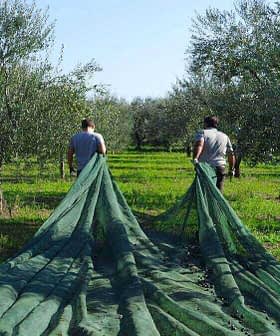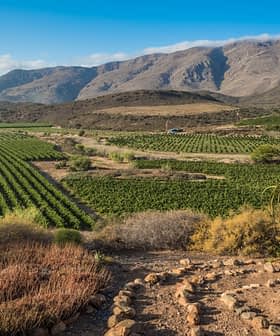Improving Olive Grove Biodiversity Helps Fight Xylella Fastidiosa and Climate Change
Scientists and farmers at the latest LIFE Resilience project workshop in Portugal discussed how nature and technology will shape the future of European olive growing.
Preventing the spread of Xylella fastidiosa and mitigating the impacts of climate change on almond and olive growing were the main focuses of the latest LIFE Resilience project workshop in Elvas, Portugal.
Vasco Abreu, the commercial director of Nutripado and organizer of the LIFE Resilience project workshop, told Olive Oil Times that the project’s goal is to help farmers develop good agricultural practices.
The goal of our projects under development within LIFE Resilience is to have nature as our ally.
Experts and farmers gathered in the central-eastern Portuguese city to discuss the use of technology and biodiversity to prevent the spread of diseases, how farmers could effectively reduce inputs such as fertilizer, water and pesticides and reduce the carbon footprint of modern almond and olive farming.
During the workshop, experts said the deployment of early detection methods is paramount to preventing the spread of Xylella fastidiosa in the plentiful high-density and super-high-density groves of Andalusia and Alentejo, the largest olive oil-producing regions in Spain and Portugal, respectively.
See Also:Conservationists Hope to Replicate Success of Biodiversity Project in Northeast Spain“The prevention of this bacterium is vital, with proper management of the crop and the maintenance of a health status of the plantations,” said José Carlos Caballero, a technical expert with the Spanish Association of Young Farmers and Ranchers (Asaja).
He emphasized how cooperation is essential for the success of detection and early warning networks to identify early outbreaks and stem their spread.
“Technology should be considered a tool that farmers can count on to enhance production management,” added Jorge Blanco, the research and development director at Greenfield Technologies, a project partner.
Blanco said the digitalization of olive grove and almond farm management might also attract younger people into the agricultural sector and help to facilitate the necessary generational change.
The most recent technologies deployed in the project’s groves include drones that use thermal cameras to identify infected trees via their temperatures, conductivity sensors that allow farmers to monitor soil moisture using GPS and satellite imagery to analyze the plant development on the farm.
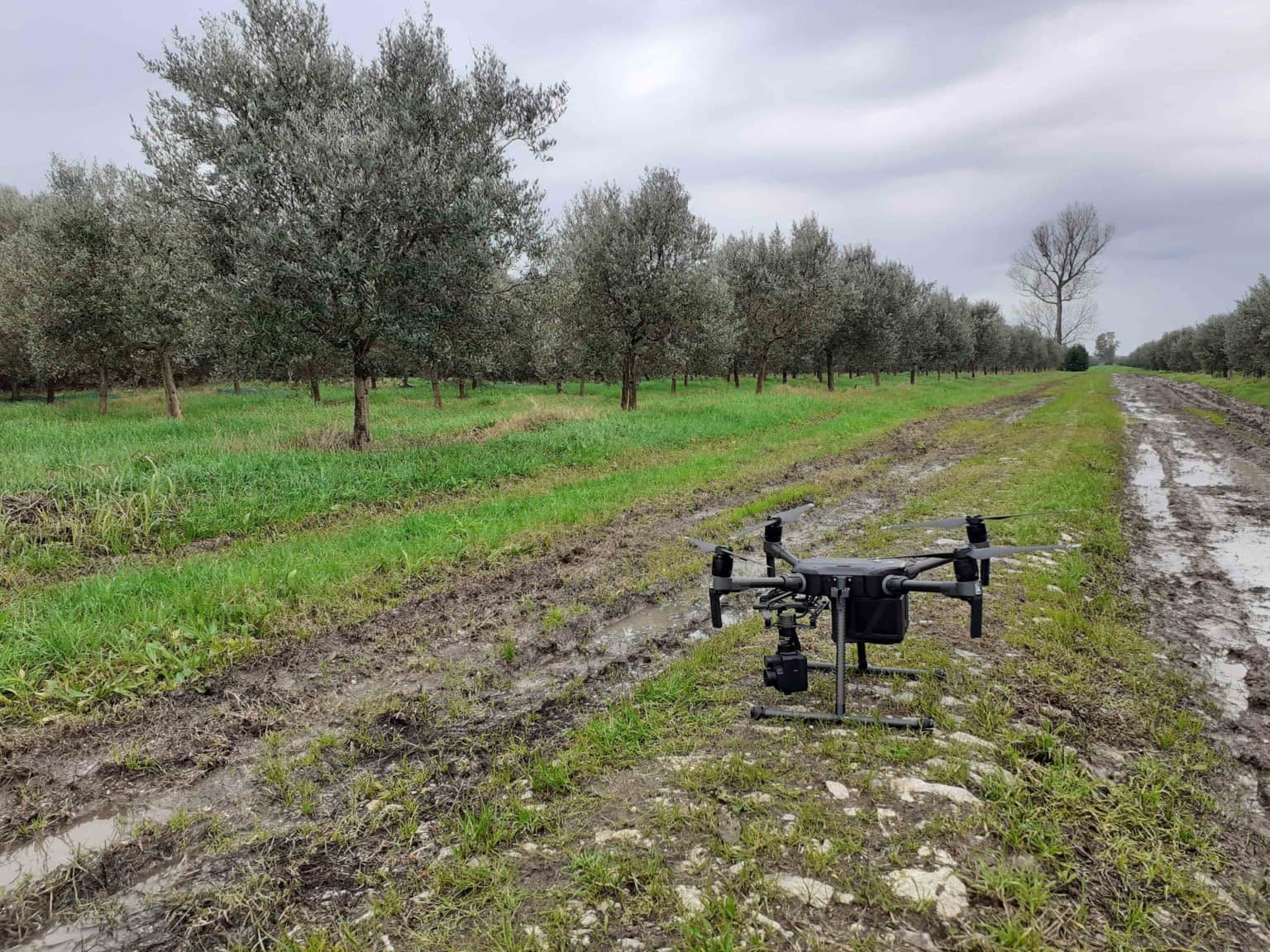
Measuring olive tree temperatures with drones
While technology has a role to play in managing modern olive groves more effectively and stemming the spread of disease, the project organizers emphasized the role of biodiversity in sustainable modern olive farming.
Abreu said growing natural vegetation in olive and almond groves is essential to foster biodiversity, improve their carbon footprint and enhance soil quality.
“In almond and olive fields, the vegetable cover among rows can be adopted by growing leguminous and other mixed plants which maintain moisture in the soil and offer nutrition to a series of beneficial microbes, which fix necessary elements in the soil,” Abreu said.
“Applying this approach also means that farming might also capture carbon, as the leguminous plant cover can sequester up to eight tons of carbon per hectare,” he added. “They also sequester nitrogen, which enhances the fertility of the soil.”
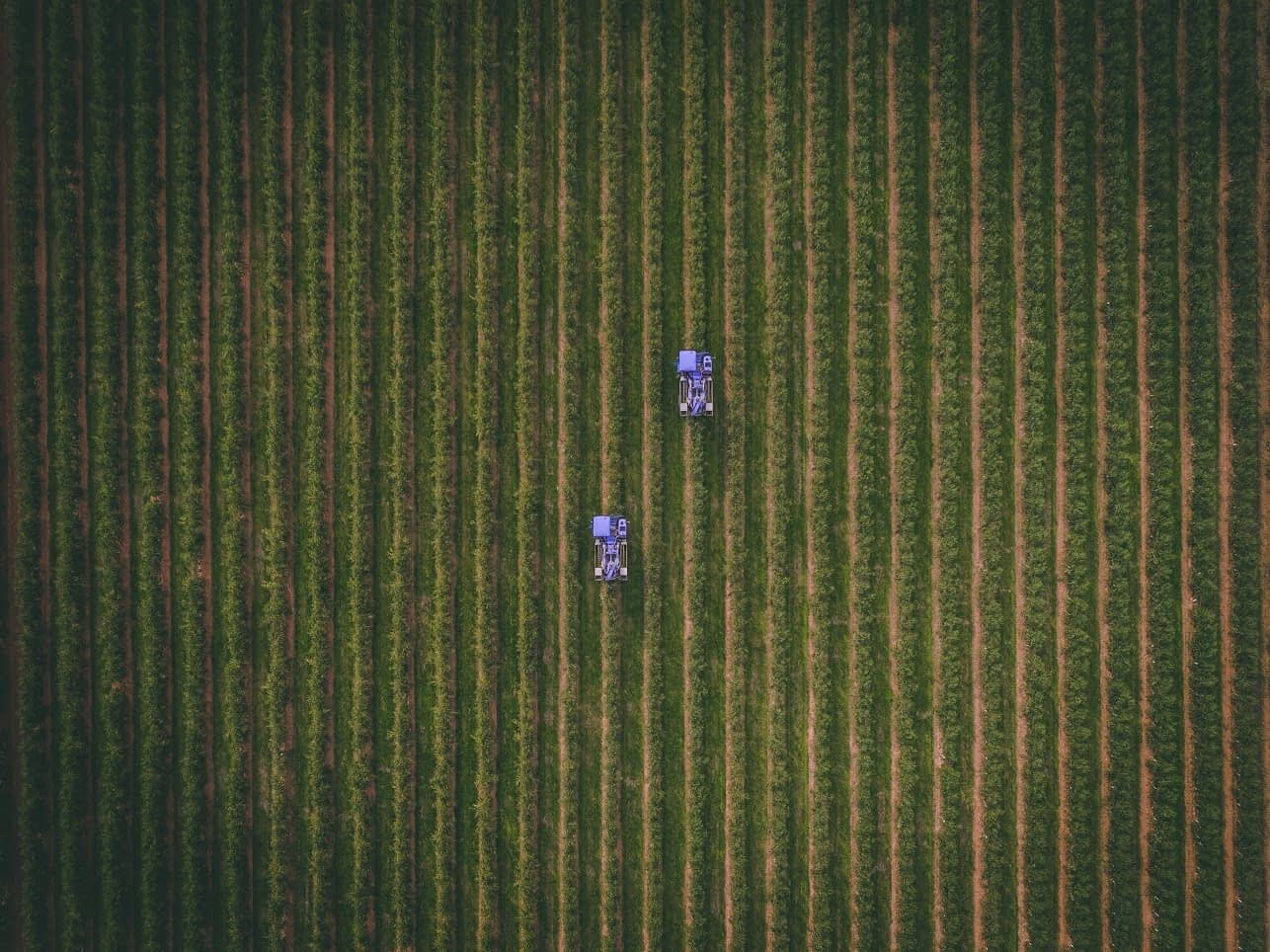
However, nitrogen is just one of the three elements necessary for plants to transform the sun’s energy into food. Pedro Fevereiro, the executive director of Innovaplant Protect, told Olive Oil Times that improving biodiversity in olive groves helps fix the other two in the soil as well.
“Each species of plants used as soil cover, be that leguminous or grass, holds specific minerals, such as nitrogen, potassium or phosphorus, and microbes will be able to recycle those minerals reducing the need for fertilizers,” he said.
Fostering biodiversity among the olive groves also helps reduce the number of pests, some of which are vectors for Xylella fastidiosa, by providing an appropriate environment for their natural predators.
“This project can effectively reduce the vector insect population by adopting structures, such as bushes, flowers or other vegetable covers,” Fevereiro said. “Biodiversity can also help tackle climate change by reducing fertilizer use and bringing farmers to more nature-friendly solutions. It can also reduce water usage or pesticides.”
In the experimental fields, some of the vegetative cover was specifically chosen to create habitats for a range of micro-organisms, insects and birds, some of which are natural predators of the meadow spittlebug, a common vector of Xylella fastidiosa.
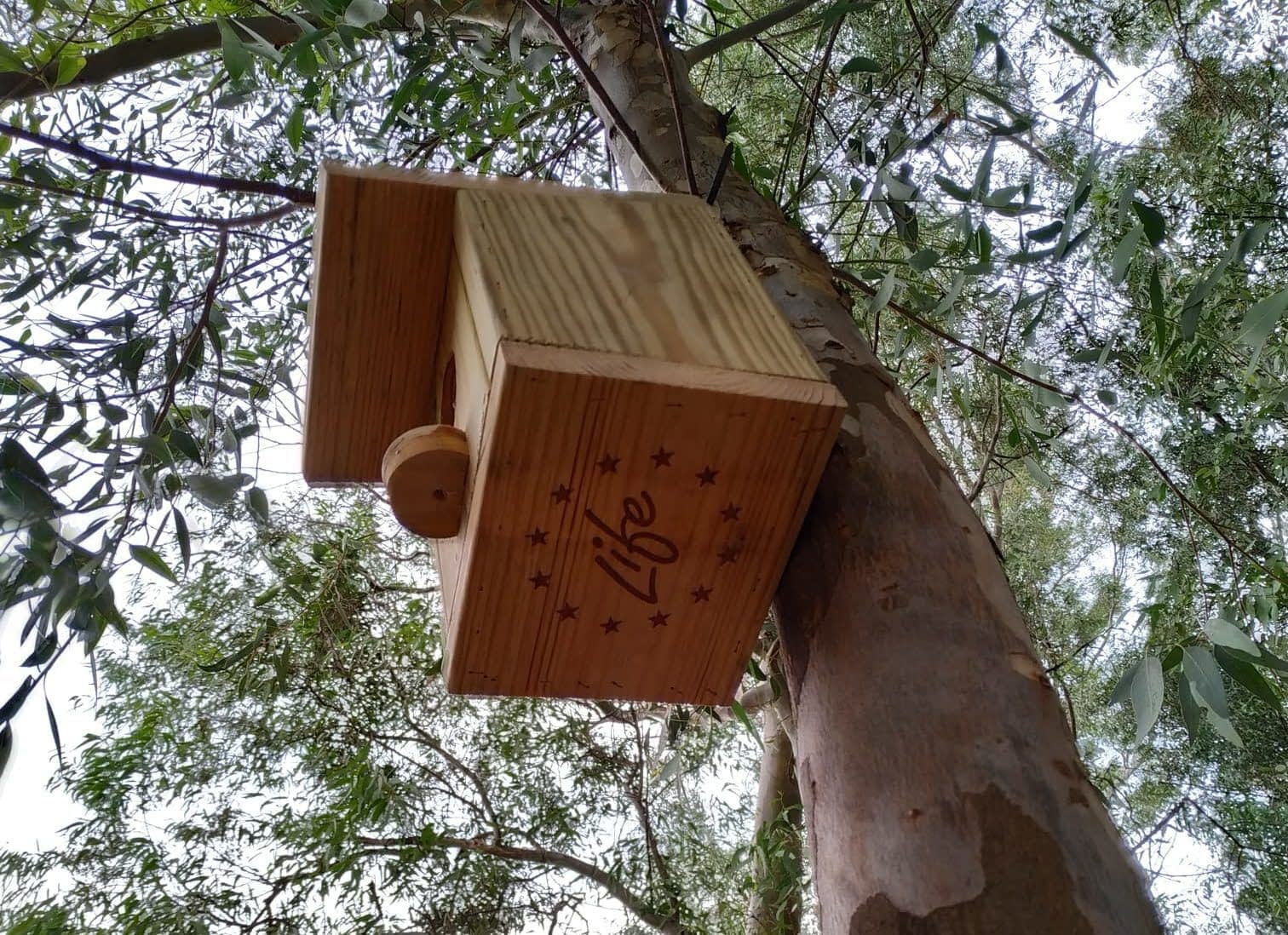
Introducing nest boxes in olive groves to bring brids back to the ecosystem
“This approach means that farmers should not focus only on the crops themselves, but think of them as part of a complex system,” Fevereiro said. “By taking care of them and learning how to enhance them, productivity and health of the crops will be greatly improved.”
“You need to work with nature and have a holistic approach to improve sustainability and production,” he added.
Another key finding of the LIFE Resilience project was the identification of the Beauveria bassiana fungus, which appears to curtail meadow spittlebug populations effectively. Trials are underway in Puglia, the region most affected by Xylella fastidiosa, to test the efficacy of deploying an organic product in the field based on the fungus.
“The goal of our projects under development within LIFE Resilience is to have nature as our ally,” Abreu said. “That is a requirement of the Farm to Fork strategy, which is now also an opportunity for farmers.”
The experts in attendance at the conference concluded that the solutions being designed and innovated through the LIFE Resilience project could benefit more than one million farmers across the Mediterranean basin.




